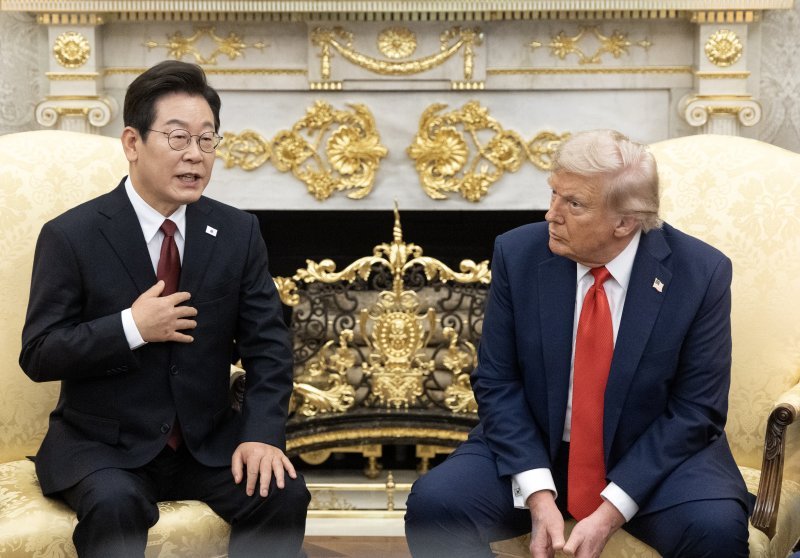[fn Editorial] Successful Korea-US Summit, Now Prepare for the 'Real Bill'
- Input
- 2025-08-26 18:19:02
- Updated
- 2025-08-26 18:19:02
Security and economic cooperation between the two countries confirmed
No disadvantages in the specific implementation process
No disadvantages in the specific implementation process

In the security field, the firm reaffirmation of the Korea-US alliance and the laying of the foundation for modernizing the alliance to respond to the changing security environment can be considered a major achievement. This was also a place to confirm the consensus to jointly approach the North Korean denuclearization issue based on trilateral cooperation between Korea, the US, and Japan and the modernization of the alliance between the two countries.
In the economic field, the two countries confirmed their intention to cooperate in the shipbuilding industry as part of a $350 billion investment in the US. By cooperating in industries where Korea has strengths, such as semiconductors, secondary batteries, and bio, the foundation for cooperation and mutual benefits in the global supply chain restructuring process was laid.
This Korea-US summit can be evaluated as having resolved a significant portion of the uncertainties in the security and economic fields, but the true outcome depends on the implementation process after the summit. In the economic field, specific negotiations should proceed in a way that aligns with the common interests of the US and Korea when executing investments. There is also a concern that the $350 billion investment in the US could lead to a decrease in domestic investment capacity. Moreover, our companies should not be sacrificed in areas where business feasibility is not confirmed. It should lead to a win-win investment that contributes to job creation and technological innovation in the US while strengthening the global competitiveness of our companies and securing new growth engines.
In the security field, wisdom is required on how much strategic autonomy Korea can secure amid the tension between the US and China. President Lee mentioned that the 'security cooperation with the US, economic cooperation with China' policy can no longer be pursued. This seems to suggest that Korea will align with the US in its checks against China. However, he also emphasized the need for practical diplomacy by adding that the US and China are competing and cooperating simultaneously. While the US emphasizes its national priority, China advocates multilateralism. Our country, which advocates a pragmatic diplomatic line, should walk the path of securing strategic autonomy between the US and China. The mention by President Trump of securing ownership of US military bases in Korea should be noted as a potential point of contention in the future discussions on modernizing the Korea-US alliance.
Overall, this Korea-US summit has alleviated uncertainties in the security and economic fields and laid the basic framework for cooperation. However, major issues between Korea and the US, such as follow-up negotiations on tariff agreements and the modernization of the Korea-US alliance, have not been completely resolved. Various issues may arise in succession after the summit. Since there were no specifically binding promises, the 'real bills' that our country has to bear may come flying in. We must derive specific and practical cooperation plans under the principle of mutually beneficial common interests and implement them without a hitch. In economic cooperation, a sustainable model that guarantees the interests of both countries should be sought. In security cooperation, we must secure Korea's strategic autonomy to build a mature alliance relationship. We hope this summit will be the starting point for a new relationship between the two countries.